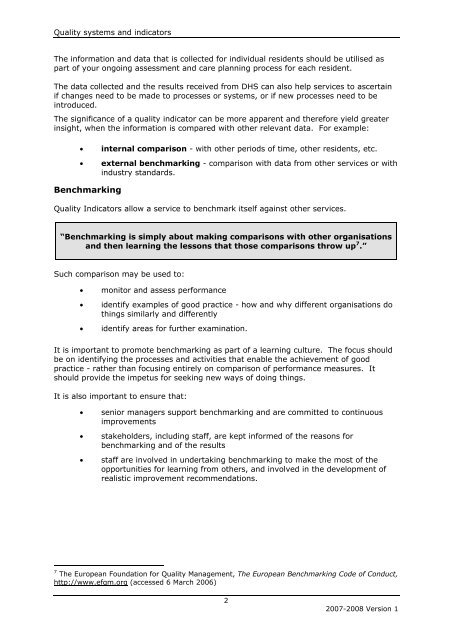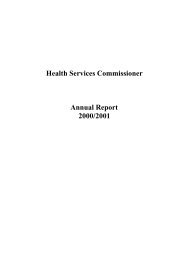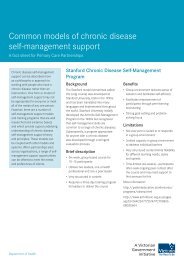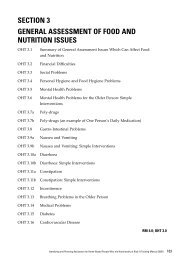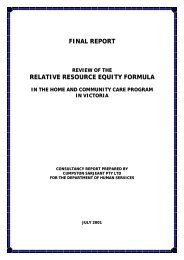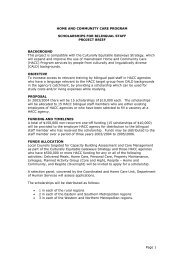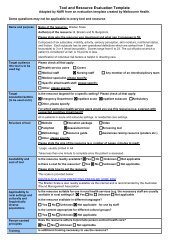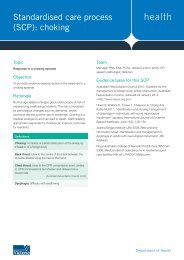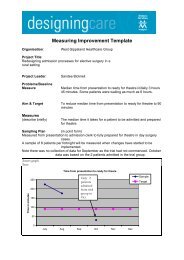Resource Manual For Quality Indicators In - Department of Health
Resource Manual For Quality Indicators In - Department of Health
Resource Manual For Quality Indicators In - Department of Health
You also want an ePaper? Increase the reach of your titles
YUMPU automatically turns print PDFs into web optimized ePapers that Google loves.
<strong>Quality</strong> systems and indicators<br />
The information and data that is collected for individual residents should be utilised as<br />
part <strong>of</strong> your ongoing assessment and care planning process for each resident.<br />
The data collected and the results received from DHS can also help services to ascertain<br />
if changes need to be made to processes or systems, or if new processes need to be<br />
introduced.<br />
The significance <strong>of</strong> a quality indicator can be more apparent and therefore yield greater<br />
insight, when the information is compared with other relevant data. <strong>For</strong> example:<br />
• internal comparison - with other periods <strong>of</strong> time, other residents, etc.<br />
• external benchmarking - comparison with data from other services or with<br />
industry standards.<br />
Benchmarking<br />
<strong>Quality</strong> <strong><strong>In</strong>dicators</strong> allow a service to benchmark itself against other services.<br />
“Benchmarking is simply about making comparisons with other organisations<br />
and then learning the lessons that those comparisons throw up 7 .”<br />
Such comparison may be used to:<br />
• monitor and assess performance<br />
• identify examples <strong>of</strong> good practice - how and why different organisations do<br />
things similarly and differently<br />
• identify areas for further examination.<br />
It is important to promote benchmarking as part <strong>of</strong> a learning culture. The focus should<br />
be on identifying the processes and activities that enable the achievement <strong>of</strong> good<br />
practice - rather than focusing entirely on comparison <strong>of</strong> performance measures. It<br />
should provide the impetus for seeking new ways <strong>of</strong> doing things.<br />
It is also important to ensure that:<br />
• senior managers support benchmarking and are committed to continuous<br />
improvements<br />
• stakeholders, including staff, are kept informed <strong>of</strong> the reasons for<br />
benchmarking and <strong>of</strong> the results<br />
• staff are involved in undertaking benchmarking to make the most <strong>of</strong> the<br />
opportunities for learning from others, and involved in the development <strong>of</strong><br />
realistic improvement recommendations.<br />
7 The European Foundation for <strong>Quality</strong> Management, The European Benchmarking Code <strong>of</strong> Conduct,<br />
http://www.efqm.org (accessed 6 March 2006)<br />
2<br />
2007-2008 Version 1


